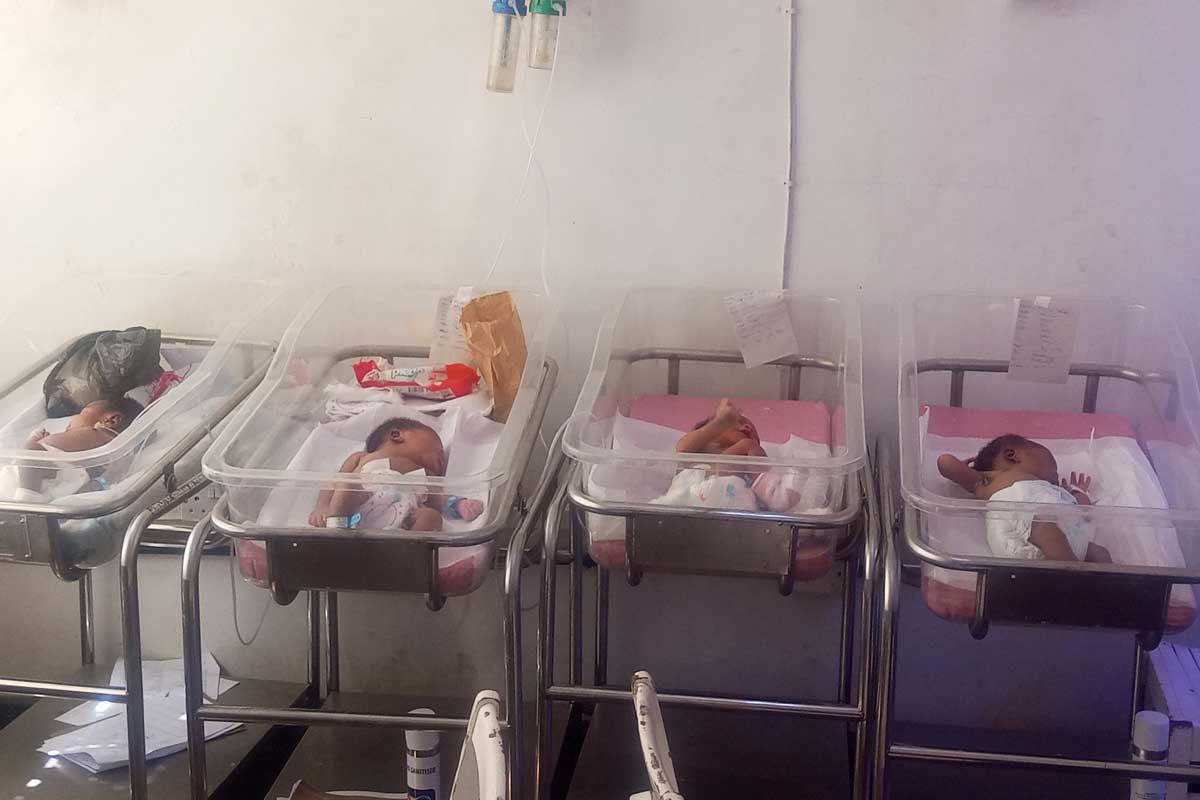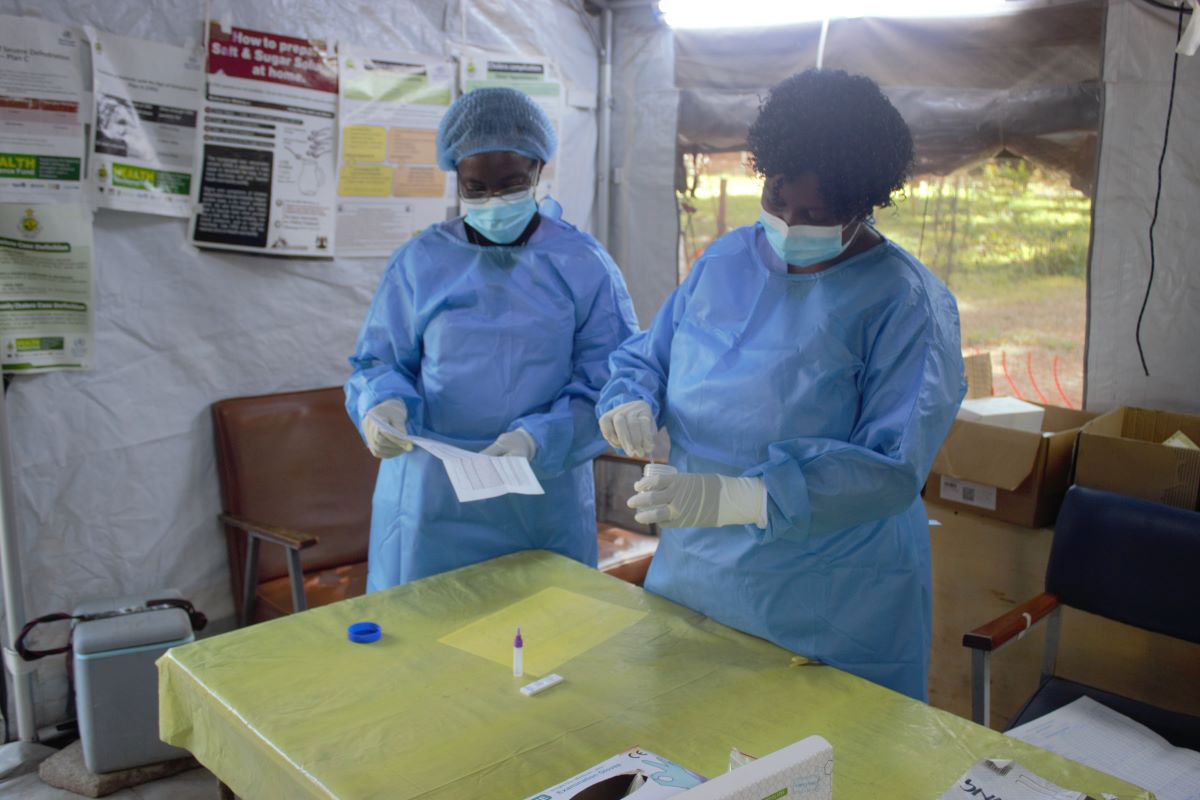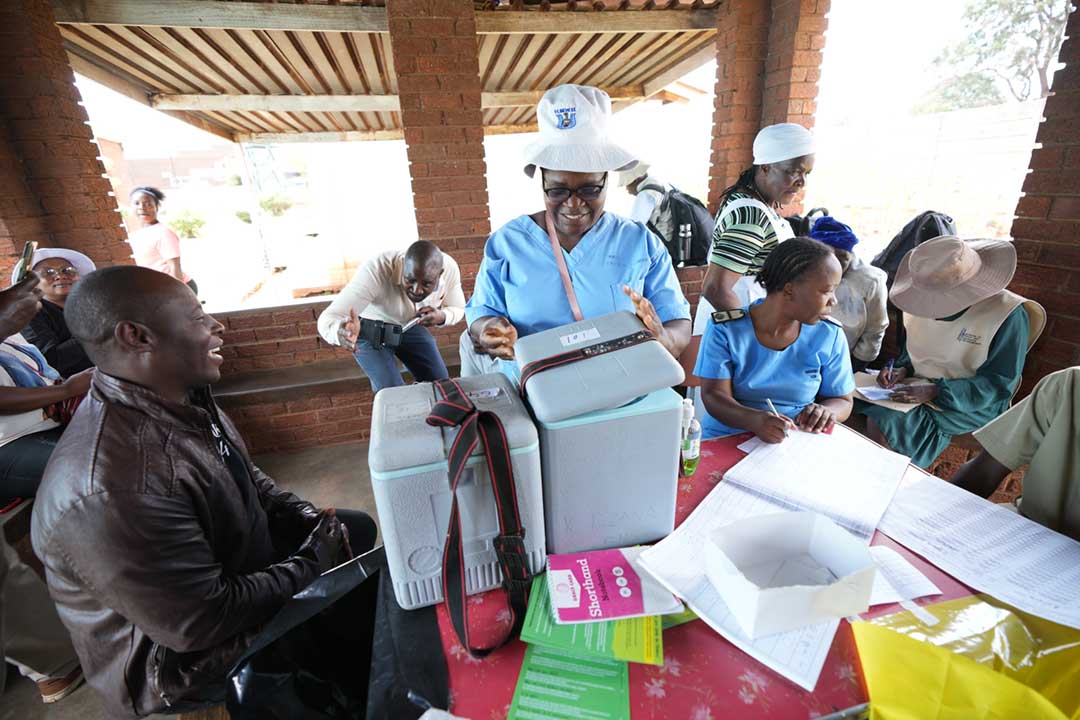Zimbabwe digs boreholes to tackle growing cholera outbreak
More than 8,000 Zimbabweans have fallen ill with the deadly bacterial illness since February, but the health system is working hard to get ahead of the growing epidemic.
- 5 December 2023
- 4 min read
- by Elia Ntali
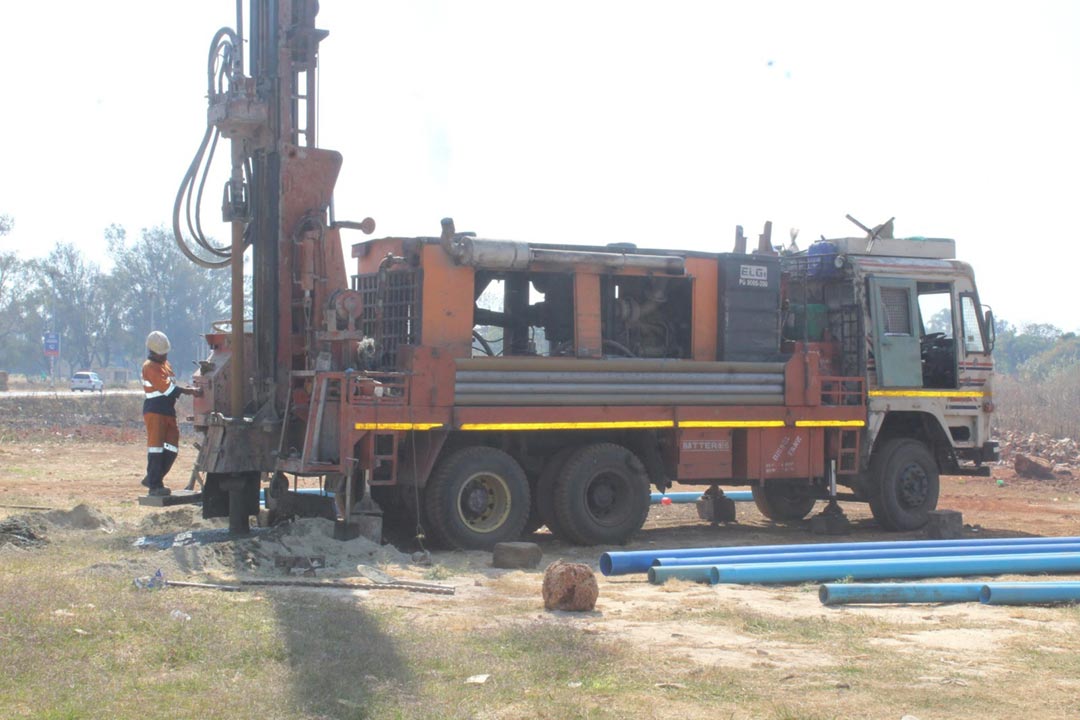
A cholera outbreak that began in February in Zimbabwe and is thought to have so far killed more than 155, sickening well over 8,000, is spiking.
As bad memories of 2008's wildfire epidemic stirred, Harare, the capital, declared a state of emergency earlier this month. Restrictions on gatherings and food vending have been imposed across much of the country. Burials in affected regions are being monitored.
"We are losing lives and it is necessary for us together as a community, with our partners and the Ministry, to scale up our interventions to stop this cholera outbreak"
– Dr Douglas Mombeshora, Health and Child Care Minister
In a bid to get at the root cause of the outbreak, the Government of Zimbabwe is drilling for clean water sources.
Tunnelling out of an epidemic
Speaking at a post-cabinet press briefing late last month, Jenfan Muswere, Minister of Information, Publicity and Broadcasting Services, said the Ministry of Health and Child Care has overseen the drilling of new boreholes in some of the worst-affected districts, including the outbreak epicentre, Buhera.
"Cabinet reports that health education on cholera prevention and control measures, including hygiene promotion, is ongoing in provinces," he added. "Door-to-door cholera [awareness] campaigns are being made in the affected provinces," said Muswere. A recent Health Ministry situational report confirms that to date, 17 boreholes have been drilled, and 20 have been repaired in Buhera District.
Cholera has been surging around the world since 2021, with Africa seeing the largest numbers of outbreaks. The causative bacterium, Vibrio cholerae, spreads in contaminated water. Scientists have known for well over 150 years that this explosively deadly epidemic disease is preventable with good sanitation and a reliable supply of potable water.
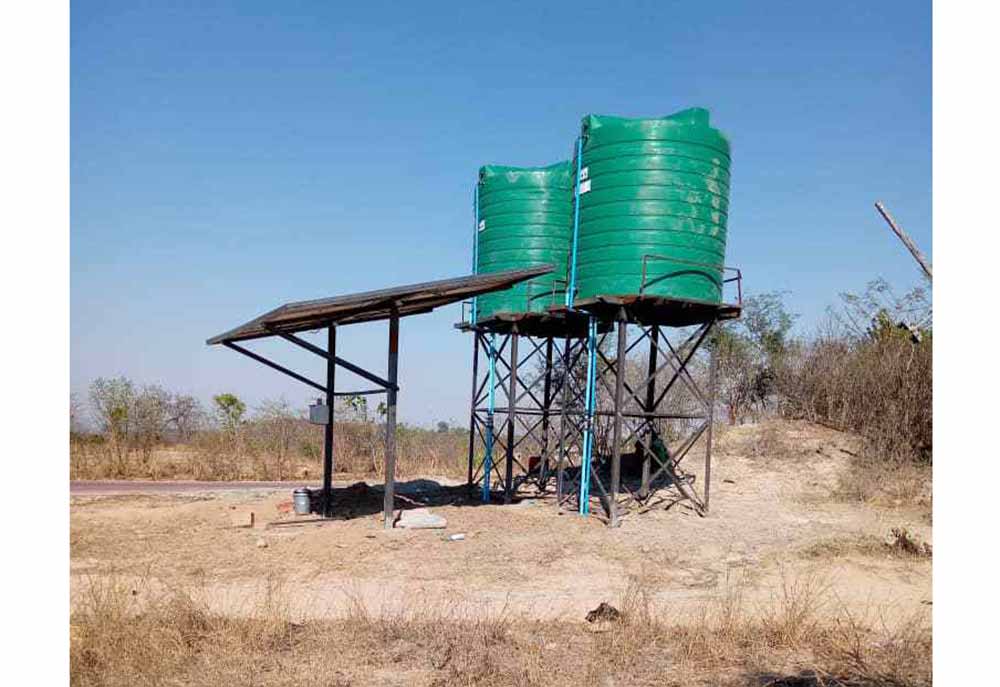
Credit: Elia Ntali
According to Samson Chitamba, a representative of Prevail, the company installing the boreholes, the boreholes will provide that via a solar-powered system that draws water up from the ground and through a chlorination mechanism.
"As water is being drawn into the tank, it passes through the inline chlorinator (which contains chlorine tablets) which is fixed along the pipe. The tablets are dissolved, meaning that the water is chlorinated, making it safer for drinking. The inline chlorinator can take up to five years before it is replaced," said Chitamba.
"We never thought we would get piped water"
Villagers in Buhera district's Ward 15 welcomed the development.
"The borehole initiative is a blessing to us as it has come at a time that we are facing a difficult situation. We are facing a cholera outbreak that has come as a result of polluted water sources. The initiative will help improve hygiene among villagers, especially schoolchildren," said Tichafara Muchadenyika.
Obert Marufu, a village head, said: "We never thought that one day we would get piped water. Since the installation of the solar-powered borehole, the community is now safe from cholera. As community leaders we will continue to raise awareness on the effects of drinking water from unprotected sources. We will ensure that the boreholes are safe and well maintained."
Healthy reception
Village health workers (VHWs) and community leaders who went through training on waterborne diseases were gratified by the community's response.
"I have received some trainings on cholera and other waterborne diseases since the cholera outbreak began," said Judith Mapanzure, a VHW. "I have been carrying out awareness campaigns in six villages and I am glad villagers have been responsive, including some religious sects that are known for shunning clinics. We have been educating villagers on basic hygiene and encouraging them to seek medical attention when they observe cholera symptoms."
Have you read?
Resistance to treatment and prevention on religious grounds among the Apostolic sect remains a hindrance to the control of the disease. However, the government has been engaging church leaders in a bid to bring hold-out groups on board.
Zvidzai Zaranyika, a community leader, echoed Mpanzure's resolve. "We have moved around villages raising awareness and the response has been exciting. I attribute this to the situation that we faced as a community following the death of some villagers. We are doing our best as a community to maintain good hygiene practices," said Zaranyika.
Hardlife Mudzingwa, the director of a local water and sanitation advocacy group called Community Water Alliance (CWA), said boreholes are great solution for some of the zones hardest hit during the current cholera outbreak.
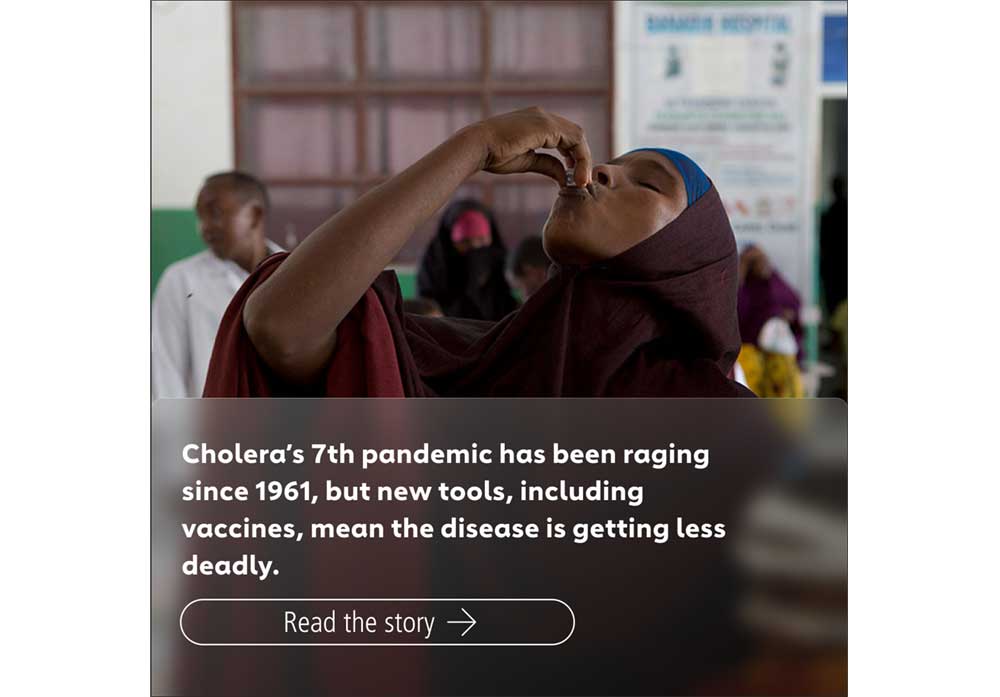
"In a rural setting, boreholes are ideal -- particularly for cholera hotspot areas like Buhera. However, standards for these boreholes are critical so that water generated is of good quality. Not all ground water is safe for drinking, so an inline chlorination system is required among other interventions that ensure quality borehole water," said Mudzingwa.
Preventable scourge
Health and Child Care Minister Dr Douglas Mombeshora said that medicines and water treatment chemicals had been distributed to households in affected areas. "One death is more than enough. We are losing lives and it is necessary for us together as a community, with our partners and the Ministry, to scale up our interventions to stop this cholera outbreak," he added.
